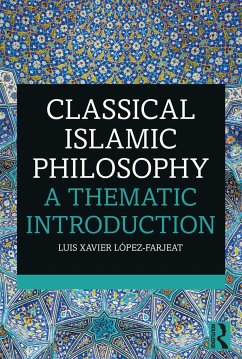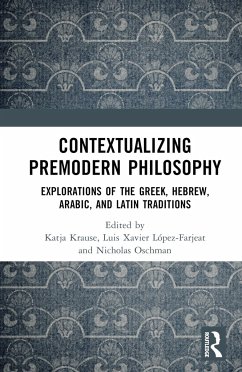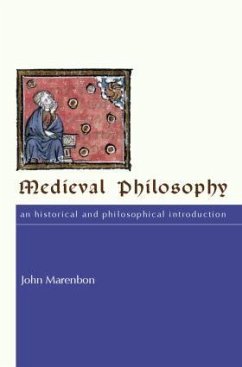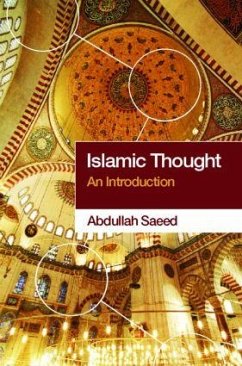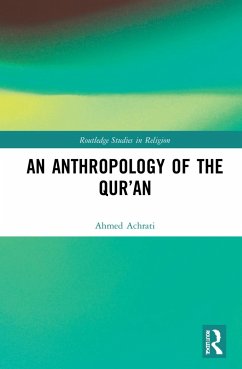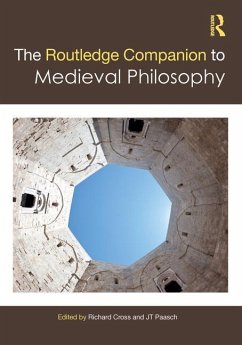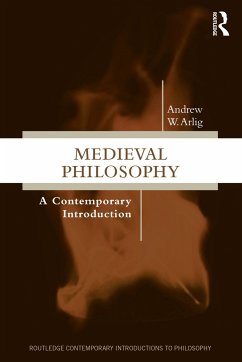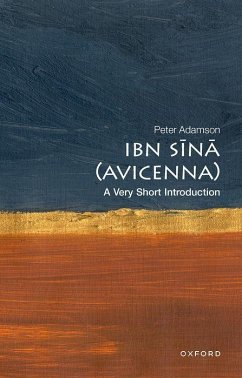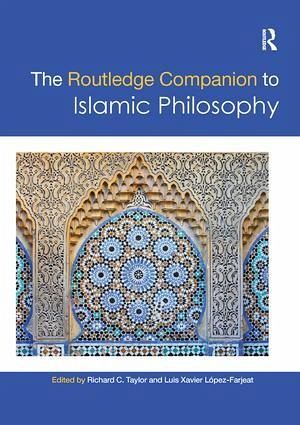
The Routledge Companion to Islamic Philosophy

PAYBACK Punkte
27 °P sammeln!
This valuable reference work synthesizes and elucidates traditional themes and issues in Islamic philosophy as well as prominent topics emerging from the last twenty years of scholarship. Written for a wide readership of students and scholars, The Routledge Companion to Islamic Philosophy is unique in including coverage of both perennial philosophical issues in an Islamic context and also distinct concerns that emerge from Islamic religious thought. This work constitutes a substantial affirmation that Islamic philosophy is an integral part of the Western philosophical tradition.Featuring 33 ch...
This valuable reference work synthesizes and elucidates traditional themes and issues in Islamic philosophy as well as prominent topics emerging from the last twenty years of scholarship. Written for a wide readership of students and scholars, The Routledge Companion to Islamic Philosophy is unique in including coverage of both perennial philosophical issues in an Islamic context and also distinct concerns that emerge from Islamic religious thought. This work constitutes a substantial affirmation that Islamic philosophy is an integral part of the Western philosophical tradition.
Featuring 33 chapters, divided into seven thematic sections, this volume explores the major areas of philosophy: Logic, Metaphysics, Philosophy in the Sciences, Philosophy of Mind/Epistemology, and Ethics/Politics as well as philosophical issues salient in Islamic revelation, theology, prophecy, and mysticism.
Other features include:
-A focus on both the classical and post-classical periods
-A contributing body that includes both widely respected scholars from around the world and a handful of the very best younger scholars
-"Reference" and "Further Reading" sections for each chapter and a comprehensive index for the whole volume
The result is a work that captures Islamic philosophy as philosophy. In this way it serves students and scholars of philosophy and religious studies and at the same time provides valuable essays relevant to the study of Islamic thought and theology.
Featuring 33 chapters, divided into seven thematic sections, this volume explores the major areas of philosophy: Logic, Metaphysics, Philosophy in the Sciences, Philosophy of Mind/Epistemology, and Ethics/Politics as well as philosophical issues salient in Islamic revelation, theology, prophecy, and mysticism.
Other features include:
-A focus on both the classical and post-classical periods
-A contributing body that includes both widely respected scholars from around the world and a handful of the very best younger scholars
-"Reference" and "Further Reading" sections for each chapter and a comprehensive index for the whole volume
The result is a work that captures Islamic philosophy as philosophy. In this way it serves students and scholars of philosophy and religious studies and at the same time provides valuable essays relevant to the study of Islamic thought and theology.




